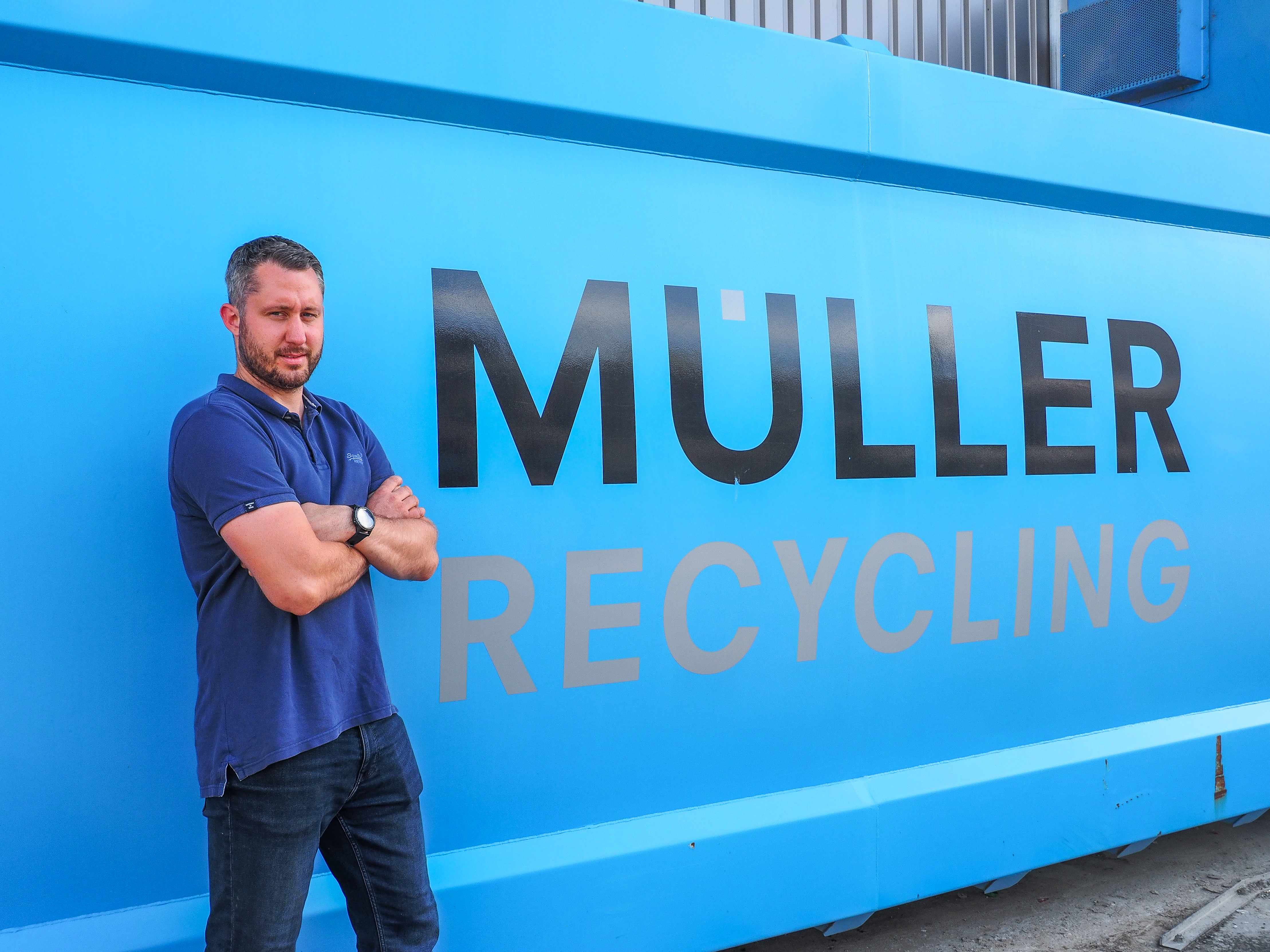Switzerland leads the way in PET recycling
Switzerland is frequently commended for its exemplary waste collection, sorting and recycling system. Plastic bottle recycling is just one example of Switzerland's sustainable waste management. Let's take a tour around Müller Recycling, where innovative technologies extend the lifecycle of plastic bottles.
Every year Müller Recycling sorts and recycles 20,000 tonnes of bottles, representing more than half of Switzerland's plastic bottle waste. Thomas Müller is the third generation of his family to manage the company, which is based in Frauenfeld in the canton of Thurgau. If he were asked to give Switzerland a score for PET (polyethylene terephthalate) recycling, it would have to be an 'A'. "PET is by far the most widely used packaging polymer, with a 95% recycling rate, which is outstanding." There are more than 56,000 PET collection points throughout Switzerland. Some 200 million bottles are recycled every year, corresponding to roughly 6,950 tonnes of PET.

Addressing the impacts of increasing consumption
PET Recycling Switzerland has been playing a key role in plastic bottles recycling since 1990. It has an extensive logistics system which ensures that empty bottles are collected efficiently and transported to facilities such as Müller Recycling. The recycling centres separate the waste and sort the bottles by cleanliness, colour and quality. Recycling enables valuable secondary raw materials to be salvaged, waste to be reintegrated into the economy, future strategies to be built, and new jobs to be created.
Recycling helps protect the environment, save resources and energy, and reduce greenhouse gas emissions.
says Thomas Müller. But he is also aware of the downsides. Although the Swiss are highly adept at collecting PET and sorting aluminium, glass, cardboard and paper, they are also producing more and more waste. According to the statistics, the volume of waste has more than doubled in Switzerland, rising from 309kg per capita in 1970 to 716kg in 2016. This increase has been driven by economic growth and consumer trends.

Towards a circular economy
But the good news is that the bulk of this waste is recycled in recycling plants such as the one operated by the Müller family for the past sixty years. Müller Recycling is among the most efficiently run facilities in Switzerland, with two teams sorting up to 90 tonnes of plastic bottles per day. Many of Müller Recycling's processes are automated. "We're proud to play a role in reducing Switzerland's carbon footprint and preventing waste from being transported abroad," says Thomas Müller, who manages a 35-strong workforce. Müller Recycling's state-of-the-art sorting technologies, developed in-house, facilitate top-grade bottle-to-bottle recycling.
New lease of life
PET is produced from petroleum or natural gas and is 100% recyclable. It retains its fundamental properties, which means it can easily be recycled and remade into bottles. In other words, old plastic bottles become reusable as new bottles. Once the bottles have been separated by colour, they are compressed into bales and transported by rail to the processing facilities, where they are shredded into flakes and pellets.
Of the 23,500 tonnes of plastic bottles sorted annually by Müller Recycling, 20,000 tonnes remain in a closed loop recycling system. Plastic bottles can be recycled over and over again, as substances can always be added to help create the new bottle. As Thomas Müller explains, the process allows bottles to be recycled up to six times. Unlike other packaging materials, PET has benefited from the shift in attitude towards recycling that started some 30 years ago. "Thanks to innovative developments, we now produce recycled PET that is so pure and of such high quality that it is barely distinguishable from new," says Müller.
Article originally published in L'Illustré, 3 November 2021.




